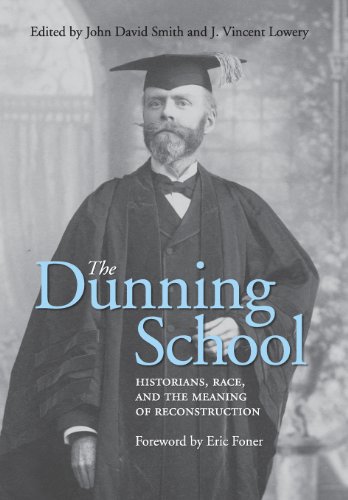

Most ebook files are in PDF format, so you can easily read them using various software such as Foxit Reader or directly on the Google Chrome browser.
Some ebook files are released by publishers in other formats such as .awz, .mobi, .epub, .fb2, etc. You may need to install specific software to read these formats on mobile/PC, such as Calibre.
Please read the tutorial at this link: https://ebookbell.com/faq
We offer FREE conversion to the popular formats you request; however, this may take some time. Therefore, right after payment, please email us, and we will try to provide the service as quickly as possible.
For some exceptional file formats or broken links (if any), please refrain from opening any disputes. Instead, email us first, and we will try to assist within a maximum of 6 hours.
EbookBell Team

4.7
66 reviewsFrom the late nineteenth century until World War I, a group of Columbia University students gathered under the mentorship of the renowned historian William Archibald Dunning (1857--1922). Known as the Dunning School, these students wrote the first generation of state studies on the Reconstruction -- volumes that generally sympathized with white southerners, interpreted radical Reconstruction as a mean-spirited usurpation of federal power, and cast the Republican Party as a coalition of carpetbaggers, freedmen, scalawags, and former Unionists.
Edited by the award-winning historian John David Smith and J. Vincent Lowery, The Dunning School focuses on this controversial group of historians and its scholarly output. Despite their methodological limitations and racial bias, the Dunning historians' writings prefigured the sources and questions that later historians of the Reconstruction would utilize and address. Many of their pioneering dissertations remain important to ongoing debates on the broad meaning of the Civil War and Reconstruction and the evolution of American historical scholarship.
This groundbreaking collection of original essays offers a fair and critical assessment of the Dunning School that focuses on the group's purpose, the strengths and weaknesses of its constituents, and its legacy. Squaring the past with the present, this important book also explores the evolution of historical interpretations over time and illuminates the ways in which contemporary political, racial, and social questions shape historical analyses.